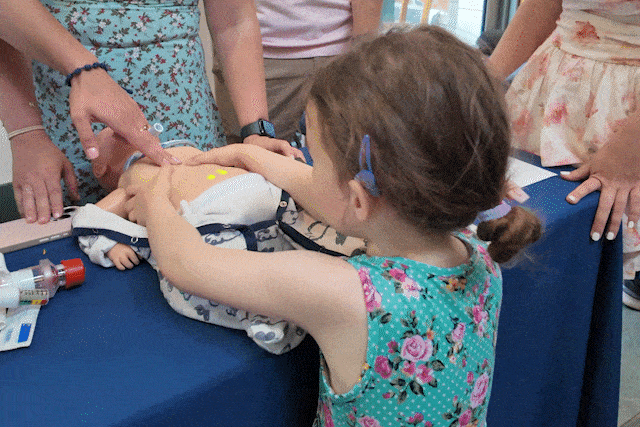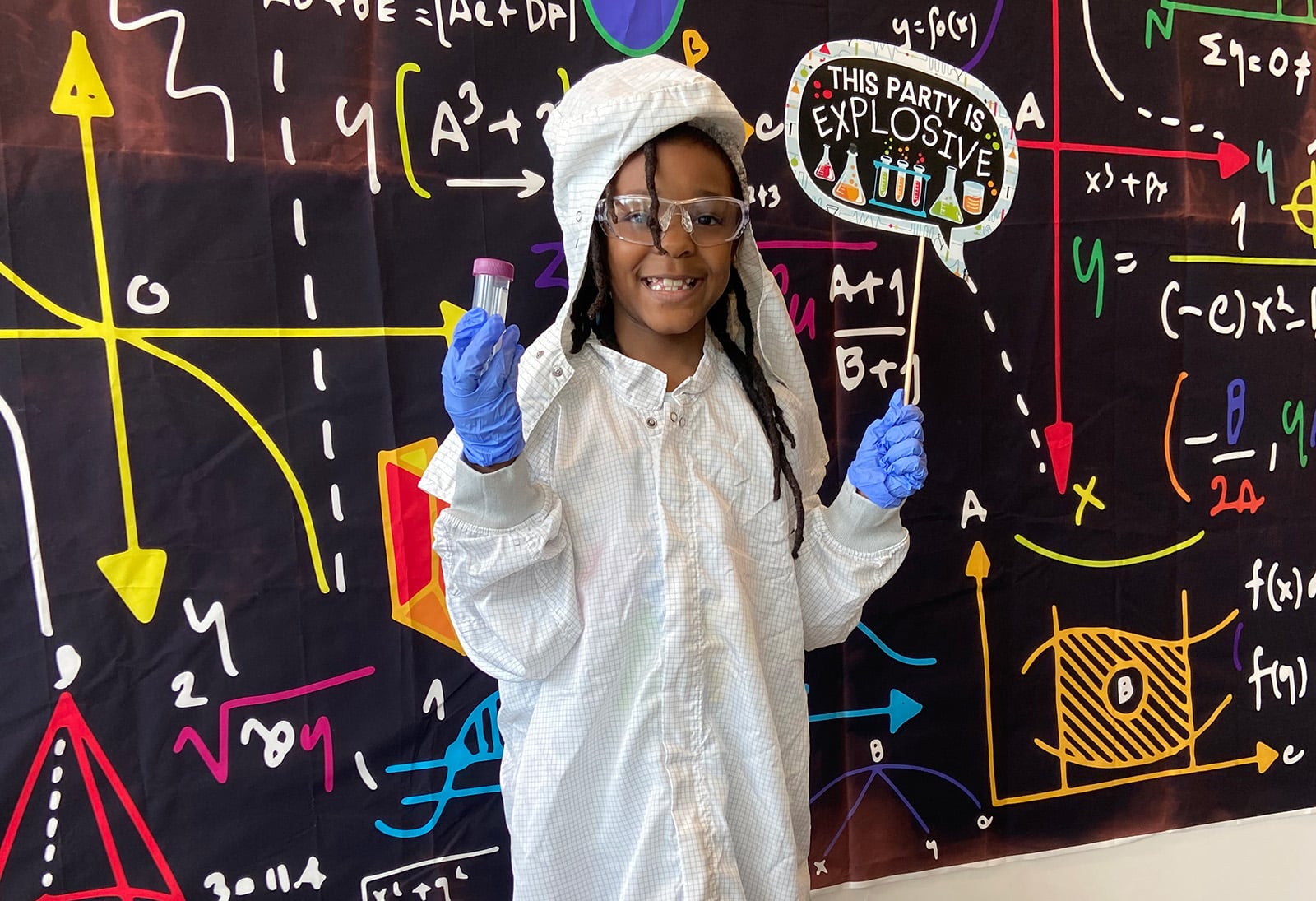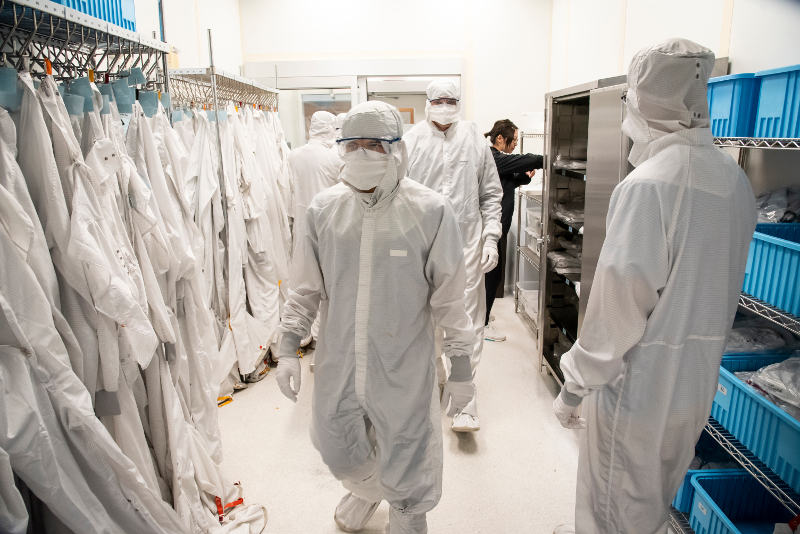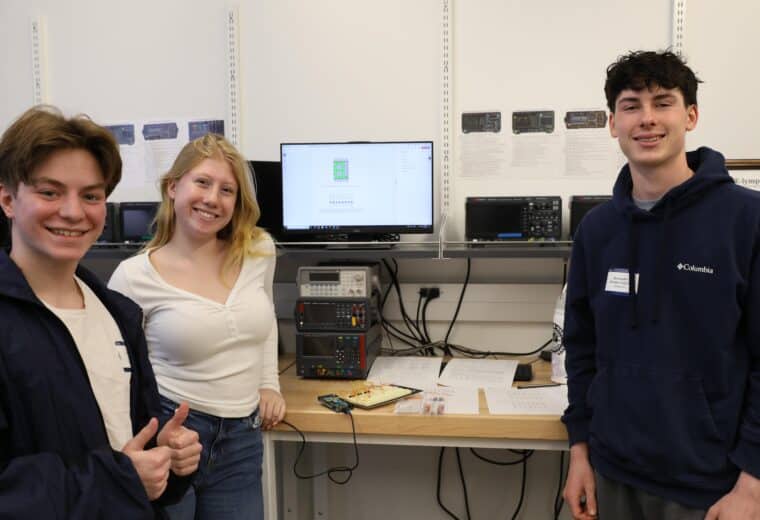
Breathing New Life Into Baby CPR Training
A team of undergrads took on the challenge of designing a responsive CPR training manikin for their MEMS senior design capstone.
Duke's Shared Materials Instrumentation Facility (SMIF) is an integral part of RTNN and its outreach efforts

The Research Triangle Nanotechnology Network (RTNN) has been honored with the prestigious 2024 Opal Mann Green Engagement and Scholarship Award at NC State University. The award ceremony, scheduled for April 29 at the Park Alumni Center, will recognize RTNN’s outstanding contributions to nanotechnology research, education, and community engagement.
The Opal Mann Award, established in 2010 to honor the leadership of former NC State faculty member Dr. Opal Mann Green, is given annually to recognize a team dedicated to using democracy in the classroom, community, and at home; creating inclusionary teams; and community-based learning around local issues.
Founded on the principles of the Kellogg Commission Engagement Seven-Part Test, RTNN emerged from collaborative efforts between NC State University, Duke University, and UNC-Chapel Hill in response to a National Science Foundation (NSF) call for proposals in 2014. Instead of competing individually, these institutions united to create a collaborative “Site” within the national university nanotechnology network, demonstrating a commitment to inclusivity and responsiveness to national needs.

Duke is represented in the RTNN primarily through the Shared Materials Instrumentation Facility (SMIF). Led by Mark Walters since its founding in 2002, SMIF features more than 70 instruments focused on nanoscale imaging, design and fabrication overseen by a team of nine staff members. Available for use to researchers across the state and country, the facility boasts a wide range of capabilities in characterization, imaging, and clean room fabrication for devices, materials and structures.
SMIF’s work can also be seen in the RTNN through its continually expanding community engagement efforts. Led by Holly Leddy, the program each year visits over 1,800 K-12 students at local schools, museums and community centers, with an additional 700 students coming to Duke’s campus to participate in activities at the SMIF facility. One of the largest community events in SMIF’s portfolio is the annual Girl Scouts STEM Day@Duke, which hosts over 140 girls and their families along with over 100 volunteers from over 40 local companies working in STEM fields in the region.
“We are so pleased that the community engagement work of the RTNN is being recognized with this award,” said Leddy. “The team at SMIF and our stellar student outreach helpers have worked so hard to share their enthusiasm for science with the broader community. From bringing our portable scanning electron microscope to the public library to helping kids try on the idea of being an engineer by trying on a cleanroom suit, our team has excelled at creating excitement around STEM. Working with RTNN has allowed SMIF to make community engagement a priority, and our success in that arena encouraged other nanotechnology facilities nationwide to follow in our footsteps in public engagement.”

The network’s goals center on enhancing accessibility to nanotechnology resources by lowering barriers such as distance, cost, and awareness. Through educational outreach programs, RTNN prepares students for STEM careers, hosts training workshops, and serves as a hub for nanotechnology networking.
RTNN serves as a portal to physical resources in the Research Triangle and intellectual resources by leveraging the expertise of more than 100 principal faculty and over 45 technical staff members across three constituent universities and nine core-shared user facilities.
RTNN’s impact extends beyond research facilities. The network collaborates with community colleges, museums, and libraries to promote awareness and engagement with nanotechnology. Programs like the RTNN Kickstarter Program and “Nanotechnology, A Maker’s Course” on Coursera aim to educate and attract new users by offering initial free access and online courses.

RTNN trains high-quality leaders in many ways. The annual Research Experience for Teachers takes place every summer and is aimed at continuing education for middle and high school teachers as well as community college instructors. Also during the summer is the Research Experience for Undergraduates, where selected students from all over the country participate in a 12-week program allowing them access to facilities and labs at NC State, Duke University, and UNC-Chapel Hill.
In addition to its educational efforts, RTNN conducts social science research to improve user experiences and inform program development. The network’s commitment to engagement is evident in initiatives like the Community College Internship Program, which provides laboratory experience to community college students seeking to transfer to RTNN institutions.
RTNN’s innovative programs and partnerships exemplify a commitment to democratizing university resources and advancing nanotechnology education and research. The Opal Mann Green Engagement and Scholarship Award recognizes RTNN’s exceptional contributions to the field and its dedication to fostering collaboration and accessibility in nanotechnology.

A team of undergrads took on the challenge of designing a responsive CPR training manikin for their MEMS senior design capstone.

Several groups of students and faculty in multiple programs tied to Duke Engineering are working to help those suffering from humanitarian crises.

Duke’s Department of Electrical & Computer Engineering brought more than 80 high school students to campus for a full day including tours, lunch and a lab.